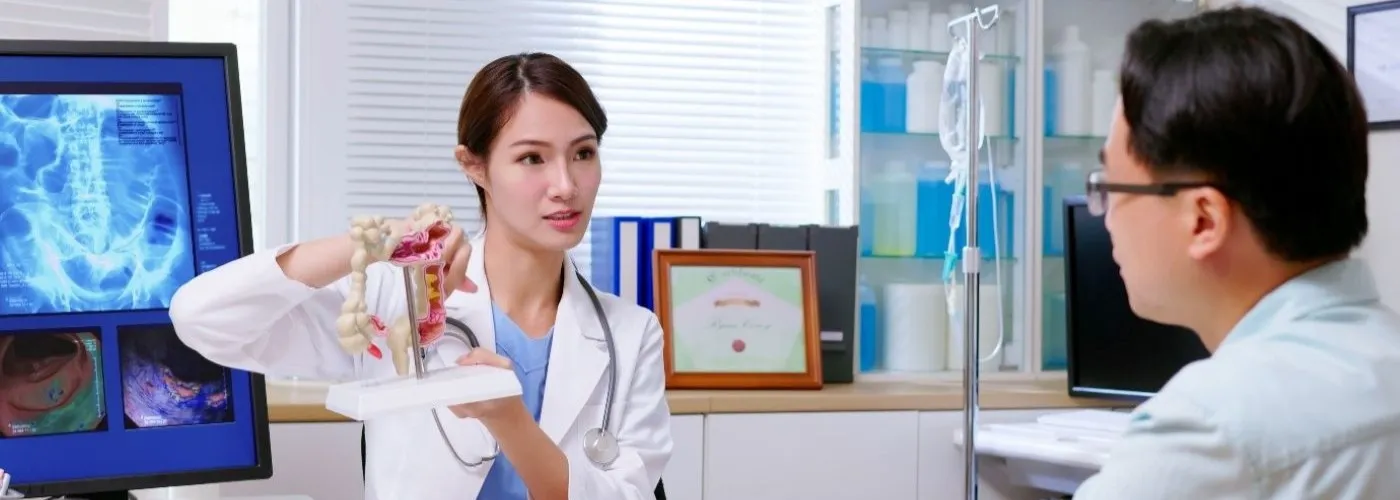Topics
1. Detailed GERD Symptoms 2. How to Treat GERD with Lifestyle Changes 3. How to Treat GERD with Medications 4. How to Treat GERD with Medical Procedures Conclusion References:Gastroesophageal Reflux Disease (GERD) can be treated using various methods. This condition is commonly experienced by people in Indonesia and can be exacerbated by bad habits, such as skipping meals, drinking caffeinated beverages, or consuming alcohol on an empty stomach. GERD symptoms can vary from person to person.
If left untreated, GERD can lead to serious complications such as esophagitis or even esophageal cancer. Therefore, it is essential to understand how to treat GERD properly. You can find the answer below!
1. Detailed GERD Symptoms
GERD presents a range of symptoms that can vary from person to person. Here are the most common symptoms experienced by GERD patients:
- Heartburn (Burning Sensation in the Chest)
Heartburn is the most common symptom experienced by GERD patients. It usually occurs when GERD reaches the esophagus. Heartburn typically appears after meals or when lying down. It worsens at night or after consuming fatty or spicy foods.
- Acid Regurgitation
GERD patients may experience a bitter or sour taste in their mouth. This happens when food or liquid rises back into the mouth or throat. This sensation can make some individuals uncomfortable and even avoid eating.
- Chest Pain
Chest pain is also common in GERD patients. The pain feels similar to the pain caused by a heart attack, but it is actually related to the digestive system. This pain is caused by irritation in the esophageal lining due to exposure to stomach acid.
- Difficulty Swallowing (Dysphagia)
When GERD flares up, some patients experience difficulty swallowing. This feels like food is stuck in the throat. Some people even vomit because the food cannot go down properly. This could be due to inflammation or narrowing of the esophagus caused by recurring acid reflux.
- Chronic Cough and Sore Throat
GERD often leads to a persistent dry cough. The acid reflux can trigger a cough reflex as the body tries to clear the airways. The cough is typically worse at night or after eating and may be accompanied by hoarseness or sore throat due to acid irritation. If these symptoms occur, it is important to find the proper GERD treatment immediately.
- Nausea and Vomiting
Nausea and vomiting are common symptoms. GERD may cause recurring nausea, especially after eating. In some cases, dizziness can accompany this, signaling that the acid reflux has reached the head. If this issue is not treated, it may lead to weight loss and dehydration.
- Sleep Disturbances
Lastly, acid reflux during the night can cause trouble sleeping or frequent awakenings. This can be exacerbated if the patient sleeps in the wrong position. For GERD patients, it’s important to pay attention to sleep posture, especially when GERD flares up at night.
2. How to Treat GERD with Lifestyle Changes
GERD symptoms can be managed with the appropriate treatment. According to Healthline, GERD treatment can begin with changes to daily habits and lifestyle. Some adjustments GERD patients can make include the following:
- Regulating Eating Habits
GERD patients need to be mindful of the foods they consume. Avoid eating large portions when the stomach is empty. Eating smaller meals more frequently is recommended. Additionally, avoid foods that can trigger reflux, such as fatty foods, spicy foods, caffeine, alcohol, and acidic foods. Always chew food slowly and avoid rushing meals. It is also important not to lie down immediately after eating. Allow food to digest in an upright position for at least 2-3 hours before sleeping.
- Maintaining a Healthy Weight
Maintaining a healthy weight is not only for physical appearance but also for overall health. Excess weight puts extra pressure on the stomach, which can worsen GERD. Maintaining a healthy weight through a balanced diet and regular exercise can help reduce symptoms.
- Proper Sleep Position
If GERD occurs at night, it is advisable to avoid lying with the stomach level to the head. This can be prevented by using additional pillows to elevate the head position by about 15-20 cm while sleeping. Sleeping on the left side can also help prevent acid reflux into the esophagus.
- Avoiding Smoking and Alcohol
Smoking and alcohol consumption can worsen GERD. These activities weaken the lower esophageal sphincter, making it easier for stomach acid to move up into the esophagus.
- Managing Stress
Stress affects not only mental health but also physical health. In fact, stress can aggravate GERD symptoms. If you're stressed, the proper treatment for GERD is to manage emotions. Try relaxation techniques such as meditation, yoga, or light exercise. These techniques can help reduce stress and improve digestive health.
3. How to Treat GERD with Medications
If lifestyle changes are not enough to manage GERD, the next step is medication. Medications should be prescribed by a doctor. Some common medications used to treat GERD include:
- Antacids
These medications work by neutralizing stomach acid directly. Examples include magnesium hydroxide and aluminum hydroxide. These are effective for relieving mild GERD symptoms but are not recommended for long-term use.
- H2 Receptor Blockers (H2RAs)
These medications reduce stomach acid production by blocking histamine receptors in the stomach lining. Examples include ranitidine and famotidine. These drugs are effective for reducing GERD symptoms and treating mild to moderate esophagitis.
- Proton Pump Inhibitors (PPIs)
PPIs inhibit stomach acid production more effectively than H2RAs. Examples include omeprazole, lansoprazole, pantoprazole, and esomeprazole. These medications are often prescribed for patients with GERD that has caused esophageal inflammation.
- Prokinetics
Prokinetic drugs help improve stomach motility and speed up the process of emptying food from the stomach into the intestines. Examples include domperidone and metoclopramide. These are generally used in cases of GERD related to motility disorders.
- Natural Supplements and Herbal Remedies
Some individuals use natural supplements or herbal remedies to treat GERD safely. Examples include licorice root, ginger, and aloe vera. However, it’s essential to consult a doctor before using herbal treatments to ensure effectiveness and avoid side effects.
4. How to Treat GERD with Medical Procedures
If lifestyle changes and medications are not sufficient, medical procedures may be necessary. A doctor may recommend a procedure to treat GERD, especially if the condition is severe or chronic. Common procedures include:
- Fundoplication
This surgical procedure involves wrapping the upper part of the stomach around the lower esophagus to strengthen the lower esophageal sphincter. It is typically done laparoscopically with quicker recovery times.
- LINX Device
This procedure involves inserting a small magnetic ring around the lower esophagus to help prevent acid reflux. The LINX device is an alternative for patients who do not want to undergo fundoplication.
- Endoscopy for GERD
Endoscopic procedures, such as Stretta Therapy, can help strengthen the lower esophageal sphincter muscles. This technique can be performed without the need for major surgery.
Conclusion
After learning how to treat GERD, it’s essential to consult with a doctor for proper management. GERD is a condition that can be well-managed through lifestyle changes, medications, and medical procedures. By recognizing the symptoms and receiving appropriate treatment, GERD patients can continue their daily activities with fewer disruptions. Some of these treatment options can also help prevent complications.
If you are a GERD patient and experience frequent flare-ups, it’s important to seek immediate medical attention or visit a hospital. One of the hospitals you can consider is (hospital name). Not only are the costs affordable, but the technology and services provided are excellent, ensuring you get effective and safe treatment.









